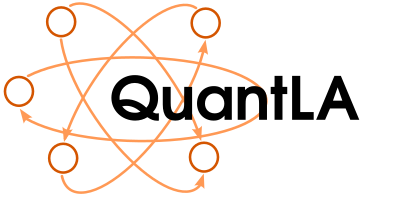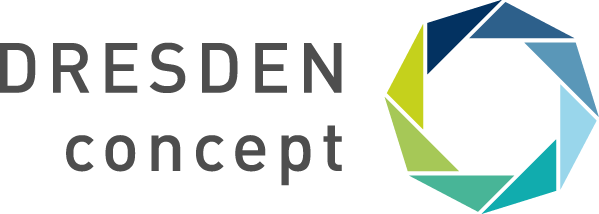We congratulate former QuantLA-scholarship holder Markus Ulbricht on the Dissertation Award of the Research Academy Leipzig 2019 for his thesis 'Understanding Inconsistency – A Contribution to the Field of Non-monotonic Reasoning' written under the supervision of Gerd Brewka. The thesis also received a “honorable mention” for the 2019 EurAI dissertation Award.
We are very happy to announce that our former member Antoine Mottet received the Ackermann Award 2019 for his dissertation 'Dichotomies in Constraint Satisfaction: Canonical Functions and Numeric CSPs' written within QuantLA under the supervision of Manuel Bodirsky. Congratulations!
More information can be found here.
Summary of QuantLA
Both automata and logics are employed as modelling approaches in Computer Science, and these approaches often complement each other in a synergetic way. In Theoretical Computer Science the connection between finite automata and logics has been investigated in detail since the early nineteen sixties. This connection is highly relevant for numerous application domains. Examples are the design of combinatorial and sequential circuits, verification, controller synthesis, knowledge representation, or natural language processing. Classical logics and automata models support modelling of qualitative properties. For many Computer Science applications, however, such purely functional models are not sufficient since also quantitative phenomena need to be modelled. Examples are the vagueness and uncertainty of a statement, length of time periods, spatial information, and resource consumption. For this reason, different kinds of quantitative logics and automata models have been introduced. However, their connection is not as well-investigated as in the classical qualitative case.
The aim of this research training group is to investigate quantitative logics and automata as well as their connection in a thorough and complete manner, using methods from Theoretical Computer Science. As possible applications we consider problems from verification, knowledge representation, and constraint solving.
The planned qualification and supervision concept aims at providing the doctoral students with as much freedom as possible for their research work, while optimally preparing them for and supporting them in their research activities. The curriculum consists — in addition to the weekly research seminar — of Reading Groups, a Summer School in the first year of every cohort, advanced lectures, and an annual workshop. In addition, the doctoral students will participate in softskills courses offered by the participating universities.



